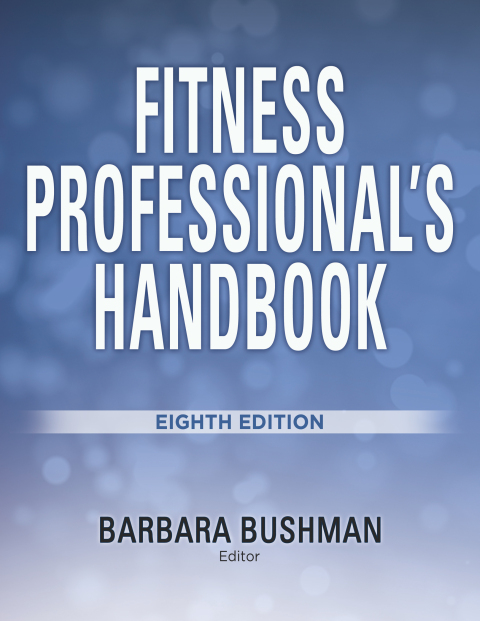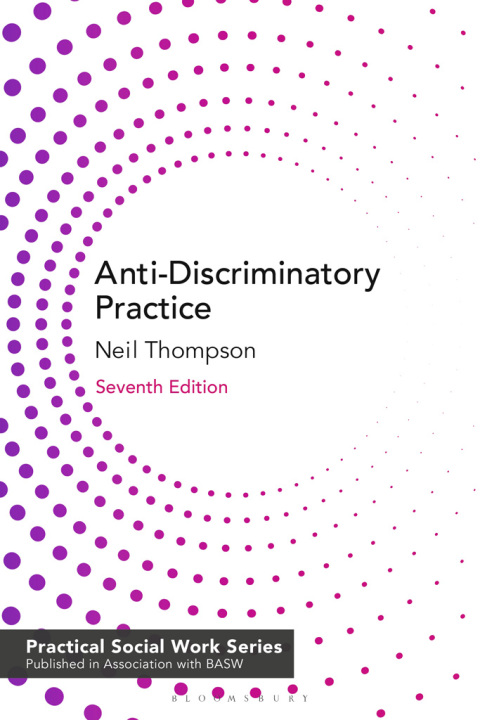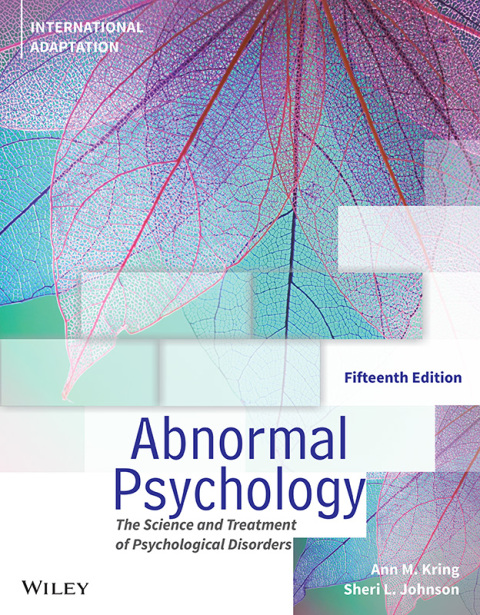Description
Efnisyfirlit
- Title Page
- Copyright
- Dedication
- Contents
- Preface
- Acknowledgments
- Part I. Physical Activity and Exercise: Realizing Benefits and Maximizing Safety
- 1. Health and Fitness Benefits of Physical Activity and Exercise
- Health and Avoidance of Disease
- Physical Activity and Health
- Physical Activity Guidelines
- Fitness
- Performance
- Pulling It All Together
- 2. Preparticipation Screening
- Screening Forms
- Evaluation of Screening Forms
- Steps Following the Screening Process
- Fitness Program Decisions
- Understanding Common Medications
- Part II. Foundations
- 3. Anatomy in Action: Functional Movement
- Skeletal Anatomy
- Structure and Function of Joints
- Joint Movements
- Skeletal Muscle
- Muscle Groups
- Basic Biomechanical Concepts for Human Movement
- Muscle Groups and the Mechanics of Physical Activity
- 4. Physiology in Action: Exercise Physiology
- Energy and Work
- Metabolic, Cardiovascular, and Respiratory Responses to Exercise
- Understanding Muscle Structure and Function
- Muscular Adaptations to Endurance and Resistance Training
- Effects of Endurance Training and Detraining on Physiological Responses
- Regulating Body Temperature
- 5. Fueling for Activity: Dietary Considerations
- Essential Nutrients
- Examining Dietary Intake
- Recommendations for Dietary Intake
- Diet, Exercise, and the Blood Lipid Profile
- Nutrition for Physically Active Individuals
- 6. Energy Costs of Physical Activity
- Measuring Energy Expenditure
- Expressing Energy Expenditure
- Equations for Estimating the Energy Cost of Activities
- Energy Requirements of Walking, Running, Cycle Ergometry, and Stepping
- Energy Requirements of Other Activities
- Part III. Fitness Assessments
- 7. Overview of Assessment
- Testing Sequence
- Development of and Participation in an Individualized Exercise Program
- Periodic Retest and Activity Revision
- 8. Cardiorespiratory Fitness Assessments
- Common Measures to Examine CRF
- Graded Exercise Tests
- Field Tests
- Appendix 8.1: Treadmill Speed and Elevation Settings
- Appendix 8.2: Calibrating the Cycle Ergometer
- 9. Muscular Fitness Assessments
- Preliminary Considerations
- Muscular Strength
- Muscular Power
- Local Muscular Endurance
- Testing Older Adults
- Testing Clients With Cardiovascular Disease
- Testing Children and Adolescents
- 10. Flexibility and Neuromotor Fitness Assessments
- Basics of Flexibility and Neuromotor Fitness
- Factors Affecting Range of Motion and Neuromotor Fitness
- Hip, Knee, Ankle, and Shoulder Flexibility Testing
- Spinal Range of Motion and Low-Back Function
- Lumbopelvic Rhythm
- Combined Tests of Range of Motion in Trunk and Hip Flexion
- Assessing Neuromotor Fitness
- 11. Body Composition Assessments
- Health and Body Composition
- Methods for Assessing Body Composition
- Calculating Target Body Weight
- 12. Electrocardiogram (ECG) Assessment
- Structure of the Heart
- Oxygen Use by the Heart
- Electrophysiology of the Heart
- Interpreting the ECG
- Medications That Affect Heart Rate Response
- Part IV. Exercise Prescription
- 13. Exercise Prescription for Aerobic Fitness
- Prescribing Exercise
- Short- and Long-Term Responses to Exercise
- Public Health Recommendations for Physical Activity
- General Guidelines for Cardiorespiratory Fitness Programs
- Formulating the Exercise Prescription
- Program Design
- Exercise Programming to Reach Goals
- Exercise Prescriptions Using Complete Graded Exercise Test Results
- Environmental Concerns
- 14. Exercise Prescription for Muscular Fitness
- Principles of Training
- Program Design Considerations
- Types of Resistance Training
- Modes of Resistance Training
- Safety Issues
- Resistance Training Guidelines
- Resistance Training Methods
- Resistance Training for Special Populations
- Appendix 14.1: Selected Resistance Training Exercises for the Major Muscle Groups
- 15. Exercise Prescription for Flexibility and Neuromotor Fitness
- Anatomy of the Spine
- Mechanics of the Spine and the Hip Joint
- Exercise Considerations: Preventive and Therapeutic
- Core Muscle Exercises
- Exercises to Enhance Flexibility
- Exercises to Enhance Neuromotor Fitness
- Pilates, Yoga, Tai Chi, and Aquatic Approaches
- 16. Putting Together a Comprehensive Program
- Developing Progressive and Comprehensive Training Programs
- Developing the Optimal Training Stimulus
- Balancing Activity Level With Nutritional Requirements
- Part V. Special Populations and Conditions
- 17. Youth
- Physical Activity in Youth
- Responses to Exercise
- Potential Benefits of Youth Physical Activity
- Program Design Considerations
- 18. Older Adults
- Demographic Profile
- Effects of Aging on Fitness
- Special Considerations Regarding Exercise Testing
- Exercise Prescription
- Psychological Health and Well-Being
- 19. Pregnancy
- Anatomic and Physiologic Changes During Pregnancy
- Fetal Responses to Maternal Exercise
- Signs or Symptoms to Stop Exercise
- Exercise Testing During Pregnancy
- Exercise Prescription During Pregnancy
- Postpartum Physical Activity
- 20. Weight Management
- Defining Obesity
- Increasing Prevalence of Obesity in the United States
- Potential Causes of Obesity
- Achieving and Maintaining Weight Loss
- Strategies for Gaining Weight
- Eating Disorders and Disordered Eating
- 21. Chronic Diseases
- Heart Disease and Stroke
- Cancer
- Diabetes
- Pulmonary Disease
- Osteoporosis
- Part VI. Exercise Programming Considerations
- 22. Behavior Modification
- Theories of Behavior Change
- Promoting Exercise in Sedentary and Low-Active Individuals
- Enhancing Sustained Motivation and Behavioral Adherence
- Health and Fitness Counseling
- 23. Injury Prevention and Management
- Emergency Action Plan
- Injury Management
- Environmental Concerns
- Medical Conditions
- Basic Life Support and Emergency Procedures
- 24. Legal Considerations
- Injury Data and Injuries Leading to Litigation
- Causes of Injuries and Negligence
- U.S. Law and the Legal System
- Federal Laws Applicable to the Fitness Profession
- Determining Duty in Negligence Cases
- Risk Management
- Strategies to Minimize Legal Liability
- Record Keeping and Documentation of Evidence
- Glossary
- References
- Index
- About the Editor
- About the Contributors
- About the Case Study Contributors






Reviews
There are no reviews yet.